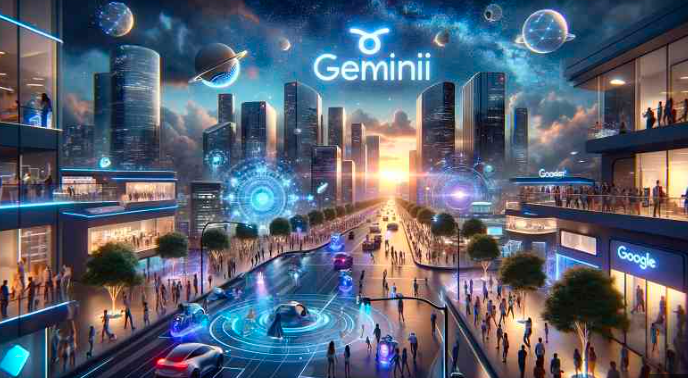The tech giant has revealed a slew of updates to its AI offerings, unveiling Gemini 1.5 Flash, enhancements to Gemini 1.5 Pro, and progress on Project Astra, its vision for the future of AI assistants.
Gemini 1.5 Flash emerges as a novel addition to Google’s suite of models, aimed at delivering faster and more efficient service at scale. Despite being lighter than the 1.5 Pro, it retains the capacity for multimodal reasoning across extensive data sets and features an unprecedented long context window of one million tokens.
“1.5 Flash excels in summarization, conversational applications, as well as image and video captioning, among other tasks,” elucidated Demis Hassabis, CEO of Google DeepMind. “This is attributed to its training by the 1.5 Pro through a process known as ‘distillation,’ where the core knowledge and skills from a larger model are transferred to a more compact and efficient model.”
Meanwhile, Google has substantially enhanced the capabilities of its Gemini 1.5 Pro model by extending its context window to a groundbreaking two million tokens. Improvements have been made to its code generation, logical reasoning, multi-turn conversation, and comprehension of audio and visual content.
Furthermore, the integration of Gemini 1.5 Pro into Google products, including the Gemini Advanced and Workspace apps, has been accomplished. Additionally, Gemini Nano now comprehends multimodal inputs, expanding its scope beyond text-only to encompass images.
Google has also announced its next generation of open models, Gemma 2, engineered for breakthrough performance and efficiency. The Gemma family is further enriched with PaliGemma, the company’s inaugural vision-language model inspired by PaLI-3.
Lastly, Google has shared updates on Project Astra (advanced seeing and talking responsive agent), its vision for the future of AI assistants. The company has developed prototype agents capable of processing information expeditiously, comprehending context adeptly, and delivering rapid responses in conversation.
“We have always aspired to develop a universal agent that can seamlessly integrate into daily life. Project Astra demonstrates multimodal comprehension and real-time conversational prowess,” elucidated Google CEO Sundar Pichai.
“With advancements like this, it is conceivable to envision a future where individuals could have an expert AI assistant at their disposal, accessible via a smartphone or smart glasses.”
Google asserts that some of these capabilities will be integrated into its products later this year. Developers can access all the Gemini-related announcements they require here. Interested in delving deeper into AI and big data insights from industry leaders? Explore the AI & Big Data Expo, occurring in Amsterdam, California, and London. This comprehensive event is co-located with other prominent gatherings, including the Intelligent Automation Conference, BlockX, Digital Transformation Week, and Cyber Security & Cloud Expo.
This article was originally published on news. Read the orignal article.
FAQs
- How does Gemini 1.5 Flash differ from the Pro version? Gemini 1.5 Flash is lighter-weight and boasts a long context window of one million tokens, making it suitable for tasks like summarization and image captioning.
- What are the key enhancements in Gemini 1.5 Pro? Gemini 1.5 Pro features an extended context window of two million tokens and improvements in code generation, logical reasoning, and multi-turn conversation capabilities.
- What is the significance of Gemini Nano’s expansion to multimodal inputs? Gemini Nano’s ability to comprehend multimodal inputs, including images, enhances its versatility and applicability in various domains.
- How do Gemma 2 and PaliGemma contribute to Google’s AI offerings? Gemma 2 and PaliGemma represent Google’s next-generation open models, designed to deliver breakthrough performance and efficiency.
- What is the vision behind Project Astra? Project Astra aims to develop AI assistants capable of processing information faster, understanding context better, and responding swiftly in conversation, ushering in a new era of AI integration into daily life.
